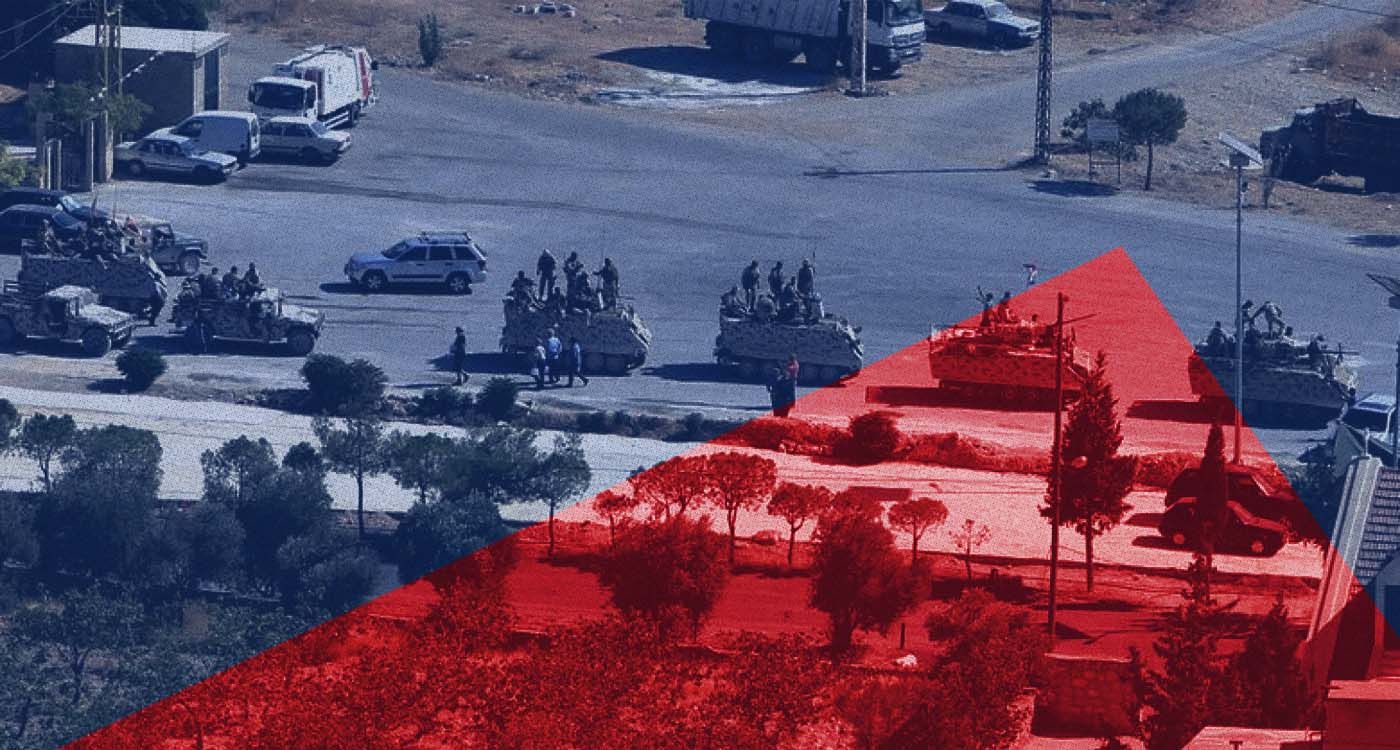
Along the road from Zahleh to Hermel, portraits of former clan leaders, imams, and martyrs adorn the buildings, set among auto repair shops and fields of cannabis. In this fertile valley, crossed by the Orontes River and framed by the Anti-Lebanon mountains, the state’s presence gradually fades as the road stretches north. In the Bekaa, clan authority often replaces the Republic. Tribal codes passed down through generations settle disputes, provide protection, and shape the social hierarchy, taking on roles the state fails to fulfill.
Local Power Rooted in History
This phenomenon is not new. Since the end of the civil war, the Lebanese state has never fully reasserted its authority across the country.
During the period of Syrian oversight from 1976 to 2005, certain areas of the Bekaa were deliberately left under the informal control of families allied with Damascus, then ruled by the Assad family, now ousted. Syrian security forces settled disputes, monitored smuggling, or turned a blind eye to parallel economies in exchange for political loyalty, as was common in many parts of Lebanon at the time.
After the Syrian withdrawal on April 26, 2005, the Lebanese state faced a vacuum it has never fully managed to fill. Although present, the army lacked both the personnel and the freedom of action needed to maintain lasting control over these regions.
“We cannot assign a soldier to every meter of the territory,” a military source speaking on condition of anonymity says. Between remote valleys, secondary roads, and rugged mountains, some areas are effectively beyond permanent control, he adds. “The army, made up of around 80,000 soldiers, intervenes when there is a risk of clashes, but never to settle local disputes.”
A retired officer interviewed by This is Beirut echoes this point. “In some parts of the Bekaa, the state only exists on paper.” “We intervene only when a crisis erupts, never to manage day-to-day affairs,” he continues.
Tribal Justice
The security situation is far from ideal, and the judicial system fares no better. In these clan-dominated regions, families have developed their own mechanisms of justice. Land disputes, inheritance conflicts, debts, family quarrels, and other incidents are resolved through mediation by local elders or clan leaders.
“Tribes have their own internal systems. As long as it does not escalate into armed conflict, the army does not intervene,” a security source admits.
Sometimes, when a crime is committed, a sulha, or customary reconciliation, is organized to prevent a vendetta. This parallel system, deeply rooted in tribal culture, works quickly, but it reinforces a logic of belonging and impunity at the expense of national justice.
A military official who served in these areas told This is Beirut: “When a problem arises, those involved do not call the police. They often turn to a family member or the clan representative. Going to court is seen as a waste of time and money. If the army is ever called in to intervene, it is not surprising to see clans unite and refuse to turn on one another.”
The Economy of Absence
In clan-controlled neighborhoods as well as in rural areas, the absence of the state has given rise to a survival economy based on smuggling, illicit crops, and informal trade networks. Northern Bekaa, particularly around Baalbeck and Hermel, has long been considered the capital of hashish trade in Lebanon. According to reports from the United Nations Office on Drugs and Crime (UNODC), the country remains one of the main producers of cannabis resin in the region.
In these territories, cannabis cultivation is more than a profitable trade: it forms a parallel economy that sustains thousands of families, many of whom are overlooked by the state. Attempts to eradicate the crops in the 1990s and again in 2012 failed, largely because no viable alternatives were offered. Local clans, with their own distribution networks and armed forces, have been able to impose their rules, often through intimidation and force.
Arms trafficking, particularly from Syria, was once widespread, though the problem has eased since the fall of the Assad regime and tighter border controls. Assault rifles, rocket launchers, and ammunition once circulated freely through the valley. Each major family maintains its own arsenal, used both for self-defense and to assert authority. In some areas, the army only moves in during large-scale operations, supported by armored vehicles. Once the forces leave, the clans return to their positions as if nothing had happened.
A Fragmented Sovereignty
The direct consequence of this situation is the fragmentation of power in Lebanon. In the Bekaa, as in other regions, state authority competes with local structures capable of providing security, resolving disputes, and even delivering social services. The Lebanese army remains respected, but its operations are constrained by political realities: no one wants to trigger a direct clash with the prominent armed families, some of whom maintain close ties with national parties or so-called political movements.
Thus, in the country’s borderlands, the Republic retreats gradually, replaced by areas of alternative authority.
This institutional vacuum observed in the Bekaa is, however, not unique. Further south, a different form of organization has taken hold: a parallel state that is structured, disciplined, and ideologically coherent. In other words, Hezbollah. In the next installment of this series, This is Beirut will explore this other Lebanese reality: a militia that has grown into a state power, administering in its own way a large part of southern Lebanon and the southern suburbs of the capital, Beirut.




Comments